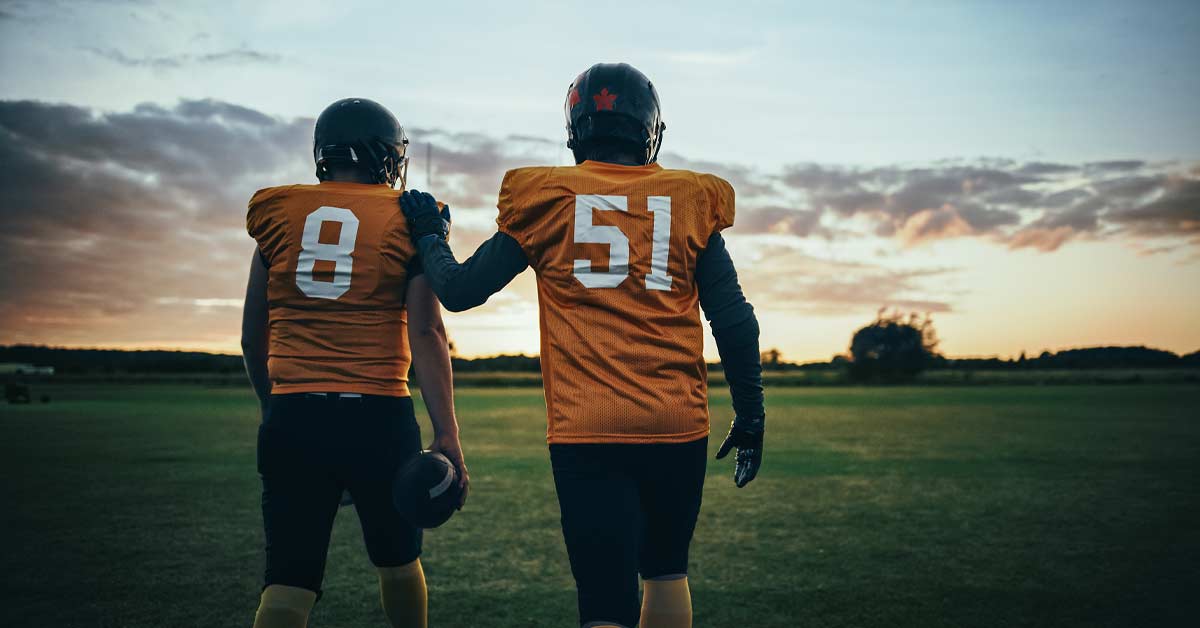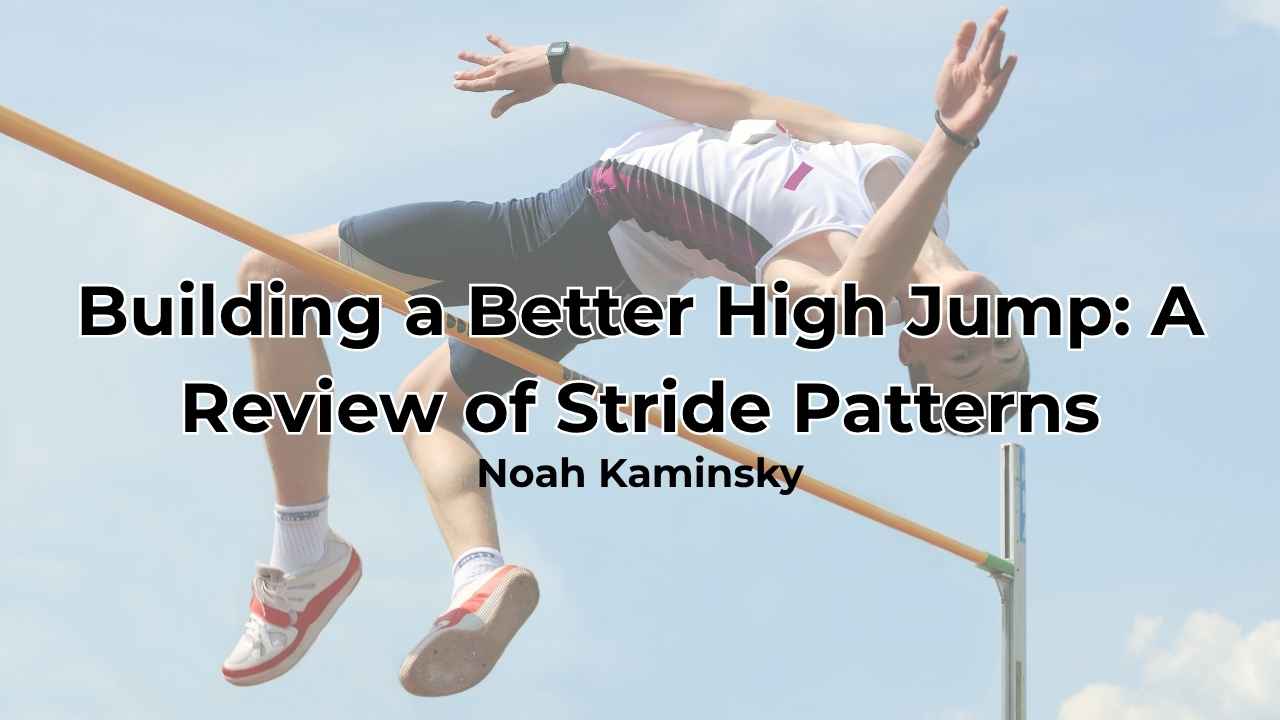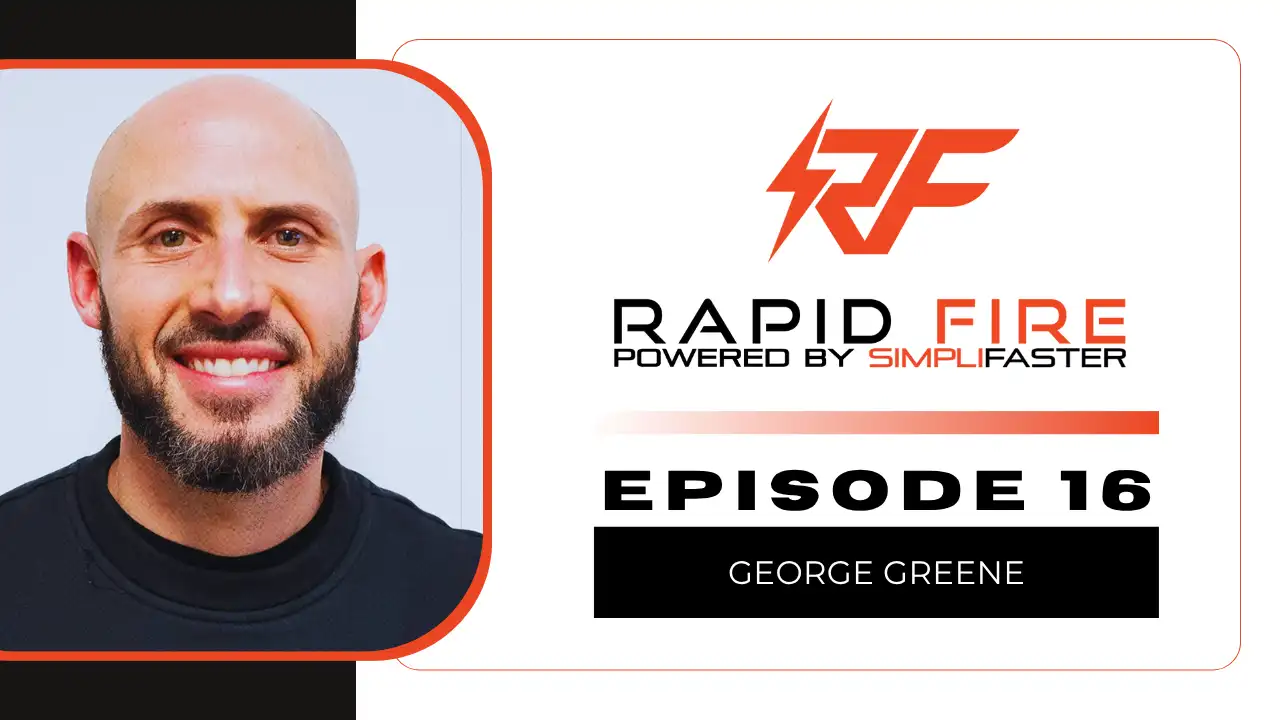Many readers may associate Archbishop Hoban in Akron, Ohio, with football because of the multiple state titles they’ve won or the national schedule they play. But Hoban has been dominant across multiple sports for several years. Coincidentally, the rise of Hoban athletics coincides with the arrival of Coach Mike Winkler.
Coach Wink joined Hoban in 2014 following an eight-year journey as a strength coach in Major League Baseball. During his time at Hoban, Coach Winkler’s teams have won state titles across multiple sports, speaking to his ability to develop athletes physically and emotionally to support continued success class after class. In addition to his success in athletic preparation, Coach Winkler also serves as the regional director for the Great Lakes region of the NHSSCA.
Freelap USA: What are your program’s fundamental tenets or pillars?
Mike Winkler: At the risk of sounding corny, our program is built on love. This goes above and beyond our weight room culture and extends to our teams at practice, in the classroom, and outside the school. Our administration and sport coaches do a great job of supporting this vision, and our athletes embrace what we preach.
When I say that our athletes have embraced a culture of love, that starts with a love for what we do in our program. They love the drive for excellence and the bonds they make, says @Hoban_Strength. Share on XWhen I say that our athletes have embraced a culture of love, that starts with a love for what we do in our program. They love the drive for excellence, the bonds they make during training, and going through hard things together. They love our school and our community. That reflects on our student sections on Fridays in the fall, Tuesday nights for basketball in the winter, and baseball games in the spring. They love this school and want success for the teams here.
Our coaches do an excellent job of loving our players well and going beyond telling them by proving it through actions, having conversations about life outside of sports or school, and being there for them when needed. As this community of athletes, coaches, school staff, parents, and alumni have all grown together in love, it’s been exciting to see the way athletics has taken off.
Athletes and coaches begin working even harder because their commitment to the teams means more to them due to their connections to each other. The ability to foster these relationships has been crucial to the community we’ve built, and the impacts on the field, the court, and the weight room have all stemmed from that.
Freelap USA: How do you keep a championship-caliber program motivated year after year?
Mike Winkler: It can be easy year over year to let the attention to detail or the effort slip. Winning is hard. It starts with never letting up on the standards. When we first set the standards, we did so for a reason. Quality standards aren’t just set to change losing behaviors. They’re set to establish winning behaviors and winning habits. So, if we set standards that target winning habits, hold ourselves and our athletes to winning standards regardless of our performance last year or last week, and focus on accomplishing our standards, winning will come.
Quality standards aren’t just set to change losing behaviors. They’re set to establish winning behaviors and winning habits, says @Hoban_Strength. Share on XAlong those same lines, we have those standards, but how we accomplish our tasks is detail-oriented. From the way we warm up, the way we lift, and the way we spot to the way we put our equipment away at the end of each session, the details make the big things. If we establish a culture focused on taking care of the details, the big things will begin to fall in line. For instance, everyone preaches effort, “We have to have great effort today,” but if we can focus our kids on giving great effort in small segments, the effort in the overarching session will be high. We want to be perfect in the little things.
Finally, we’re never satisfied. Our goal is to break records, which becomes the new benchmark for our next class. We instill in each class that while Hoban has won x number of games and x number of championships, you haven’t. And for the ones that have, we chase records and always try to keep them hungry with short-term opportunities for success.
Freelap USA: What are the most critical pieces to developing assistants or interns at the high school level?
Mike Winkler: The first piece is developing relationships. My assistant, Maddie, does a phenomenal job building relationships with our student-athletes. Once they understand the importance of relationships with the athlete, they can foster that relationship and build respect for athletes. From there, I try to find a place to allow them to build a strong coaching voice and develop clean, direct communication skills.
One of the most crucial pieces to coaching high school athletes is the ability to hold attention and demand intent with your words. We start small, allowing our interns to take control of the warm-up; then, once they master their ability to control the warm-up, they can run a session with a small group.
Young coaches need time to coach and find out what does and doesn’t work for them. Some coaches yell and scream, which genuinely fits their personality, while others are calm and control a room differently. It’s important for each coach to know their style and not try to be someone they aren’t.
With this, we want to ensure our new coaches understand the technical coaching cues we use and our kids are hearing the same terminology from every coach. This creates continuity and consistency for the athletes, and we never accept technique that isn’t to our standard.
Another big step is conveying to a new assistant or intern the importance of a pristine weight room. This is not only for sanitation and cleanliness but also because we want this space to be a place where our kids want to train, and that includes an organized, clean, like-new weight room.
Freelap USA: How do you continue to learn and grow as an established strength coach?
Mike Winkler: I love this industry because it is constantly evolving. The way we view the role of S&C compared to 10 years ago has changed drastically and continues to do so as technology improves and our understanding of the body and the game athletes play improves. I try to approach this with a desire never to stop learning, and I can’t let the industry’s understanding of training pass me up because then my athletes suffer.
Regularly talking to other coaches and networking is a must. I take every opportunity to speak to other coaches at all levels and see what they’re doing to determine what other methods may fit into our program and improve what we do without compromising who we are.
I also try to learn from leaders in other industries, like the military, corporate leaders, and others who have succeeded. What mindsets, practices, and tactics are they using to motivate themselves and those around them? What approach can I add to my toolbox to better serve my teams? While S&C operates differently than many others, there are commonalities between successful people, and I want to know what those are.
Freelap USA: What is one piece of advice that you wish your 25-year-old self knew?
Mike Winkler: Relationships are more important than your knowledge. This isn’t just with athletes, either. Many coaches approach situations spouting off science, and this isn’t a bad thing. Science is essential, but the most critical component to successful team training is the relationships we build.
Science is essential, but the most critical component to successful team training is the relationships we build, says @Hoban_Strength. Share on XAgain, back to love, our ability to draw on these emotions of selflessness, team over self, and love allows us to train harder, come together, and build an environment where we can’t let each other down because we care about each other. The ability to build relationships is a skill I wish I’d had sooner in life.
Along the same lines, I wish I’d been better at taking time before responding to others, especially when my views didn’t match theirs, whether personally, professionally, in training, or philosophically. I wish I were better at taking a deep breath, thinking about my response, and maybe waiting 24 hours before I reply or comment on social media, email, or text. And, just like any other 25-year-old, I wish I knew how much I didn’t actually know!
Since you’re here…
…we have a small favor to ask. More people are reading SimpliFaster than ever, and each week we bring you compelling content from coaches, sport scientists, and physiotherapists who are devoted to building better athletes. Please take a moment to share the articles on social media, engage the authors with questions and comments below, and link to articles when appropriate if you have a blog or participate on forums of related topics. — SF





